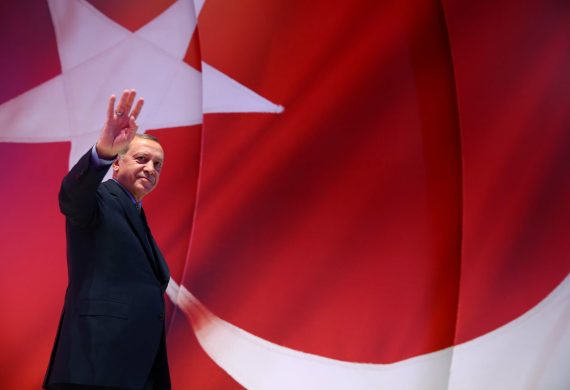Last week AK Party’s Istanbul Mayor uttered that “the municipality will give priority in providing certain services to the districts who vote for the AK Party.” Some analysts comment that this rather unfortunate statement has revealed the culmination of the AK Party’s retreat to its communal frontiers. Thus, it is taken as an acknowledgement that the governing party is no longer able to represent the political whole, or the state, but that it is one of the groups within society.
Indeed, this argument of the AK Party’s decline has been in circulation for a while and is linked to the party’s shift to the politics of native-national. This political shift is argued to have taken place once the AK Party’s move for stretching and deepening its clout in society was stopped by the Gezi Park Protests in 2013 and subsequently pushed back to its communal frontiers. The general elections on June 7, 2015, where the AK Party failed to obtain a majority of the votes and to form a single party government for the first time, and the success of the “no” campaign in the April 16, 2017 referendum on constitutional change over the government system are usually cited to mark the critical moments of the AK Party’s decline. Ironically the political opposition in Turkey also celebrates the political discourse of native-national as they believe it amounts to the weakening of the AK Party’s quest to build a new Turkey.
However, almost in complete contradiction with this decline argument, some other analysts stress and take a critical posture towards the politics of native-national, which is viewed as signaling the AK Party’s further integration with the state. The upshot of the decline argument, as noted above, is that the AK Party can no longer stand for the political whole, or the state. This second argument, on the other hand, points to the opposite direction, which highlights the AK Party’s excessive integration with the state. For this reason, the AK Party government and its politics of native-national is condemned as being undemocratic and polarizing.
Hence, there are two yet contradictory interpretations of the politics of native-national in circulation. The politics of native-national is claimed to epitomize either identification or disengagement with the state. There are two questions here: First, does politics of native-national symbolize the AK Party’s decline? And second, is politics of native-national undemocratic?
On the basis of its relations with power the AK Party has two moments, which is consonant with modern democratic politics. To state briefly, modern democratic politics harbors two contradictory tendencies: One involves emptying the place of power whereas the other encapsulates providing a particular content to that empty place of power. That’s why in the modern era we tend to separate the state (the place of power) and the government (the particular content).
Recommended
During its first phase (2002-2008), the AK Party struggled to democratize the political system. This involved ending the situation that the Kemalist forces “own” the state. In line with modern democratic politics, its policies were directed towards freeing the political from the state. Thus, as the institutional structure of bureaucratic tutelage was dislocated, there emerged a distance between the state and politics, accordingly the sphere of democratic politics continually expanded and democratic political structures began to consolidate. In short, the government has become more powerful vis-à-vis the bureaucracy.
During its second phase (2008-present), on the other hand, testified the AK Party’s various attempts to fill the place of power with a particular content. The AK Party has taken decisive steps towards increasing its grip on power by providing the most inclusive political content, yet it has remained faithful to the basic democratic norms that in principle the place of power should remain empty. For this goal, in the period of 2008-2015 the AK Party came up with the politics of civilization in order to bring society together. Once this identity failed, especially owing to the lack of concreteness, the politics of native-national was proposed.
The switch to the politics of native-national does not denote political decline, or withdrawal from power. The politics of civilization was hegemonic, so is the politics of native-national. The AK Party has not switched to a counter-hegemonic position as it has started to implement the politics of native-national. Both lines of politics endeavor to produce the largest coalition possible at societal and state levels in order to render the party as the ruling force. The basic difference between these two lines of politics, therefore, is not of their political function – since both were hegemonic – but their contents and their levels of inclusiveness. Whereas the politics of civilization was formed around the AK Party’s conservative identity, the politics of native-national underscores its nativist and nationalist identity. Indeed, the AK Party’s political paradigm is shaped by an amalgam of liberal, conservative and nationalist values. The relative importance and impact of these discrete values fluctuates as to changes in political conjecture.
All in all, while the AK Party has not yet been able to put forward an all-compassing identity, the politics of civilization and the politics of native-national have provided the most inclusive and diverse representations of the political community at different times. This situation has kept the AK Party as the hegemonic force in Turkish politics thus far and seems to prolong it in the foreseeable future.





